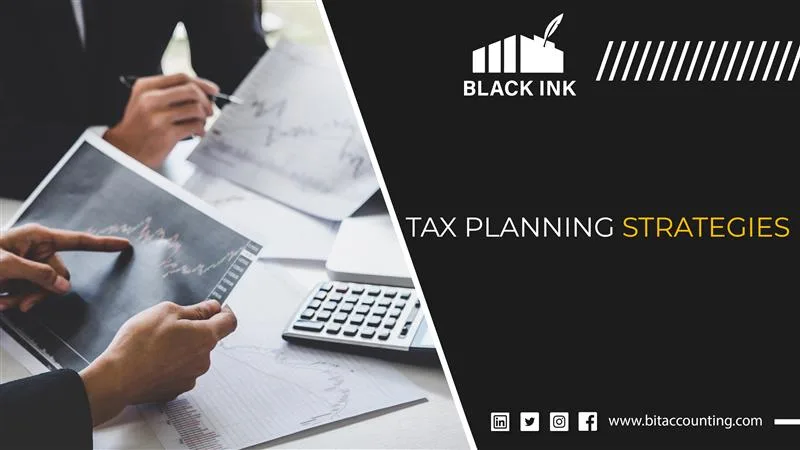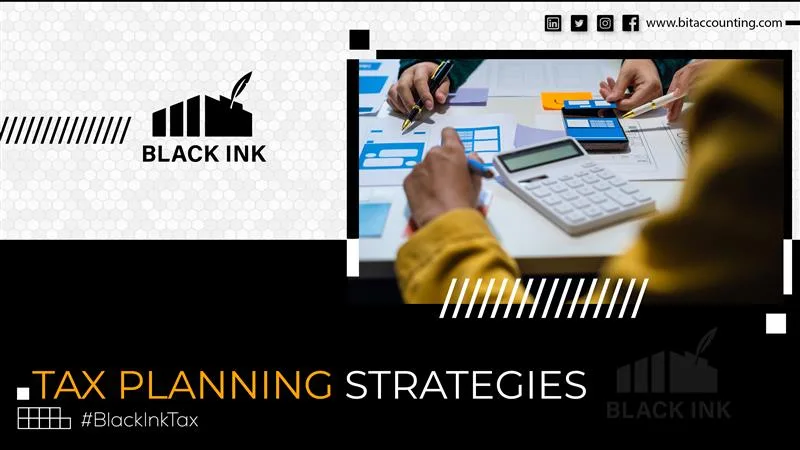
Table of Contents
Top 10 Tips and Tax Planning Strategies for Small Businesses
Tax season can feel overwhelming for small business owners. But with the right tax planning strategies, you can ease that stress and make smarter decisions that boost your profits, improve your cash flow, and keep you on the right side of the Internal Revenue Service (IRS). Whether you’re running a sole proprietorship, an LLC, or an S corporation, planning ahead can help you hold onto more of your hard-earned money.
In this blog, we’ll explore the top 10 tips and tax strategies that every small business owner should know. From deductions and credits to choosing the right business structure, we’ve got you covered with plain talk — no corporate jargon here. Let’s get started.
Top 10 Best Tax Planning Strategies for Small Businesses
Let’s explore the best 10 tax planning strategies for small businesses:
1. Keep Accurate and Organized Financial Records
Solid record-keeping is the backbone of smart tax planning. Without it, you risk missing out on deductions, making errors on your tax return, or worse — facing an audit.
Track every payment, invoice, receipt, and expense related to your business. Use tools like QuickBooks, Xero, or even Excel if you’re just getting started. Cloud accounting tools make it easy to access your numbers from anywhere and keep everything in one place. Storing digital receipts not only saves space but also makes it easier during tax preparation time.
Good records help you stay on top of your income, see where your money is going, and plan for big purchases using depreciation strategies like MACRS or Section 179.
2. Understand Your Business Structure and Tax Implications
Your business ownership type affects how you’re taxed. A sole proprietorship means you and your business are the same in the eyes of the law. That’s simple, but it may come with higher self-employment taxes.
An LLC (limited liability company) offers more protection, and you may choose how you want it taxed — like an S corporation or C corporation. An S corporation, for example, helps some business owners lower self-employment tax by taking part of their income as a salary and the rest as a distribution.
Choosing the right structure is key for reducing your tax rate. If you’re unsure, a financial adviser or tax advisor can help you weigh the pros and cons.
3. Take Advantage of Small Business Tax Deductions
Don’t leave money on the table. From your home office to travel expenses, many tax deductions can reduce your taxable income.
Here are common ones:
- Office supplies
- Utilities and internet
- Business meals
- Equipment and software
You can also claim lesser-known deductions, like:
- Startup costs
- Continuing education
- Health insurance premiums
Always document these with receipts and logs. Accurate records = more deductions = lower taxes.
4. Gain Benefits of Retirement Plans to Reduce Taxable Income
Saving for retirement helps you and your taxes. Consider:
- SEP-IRA
- Solo 401(k)
- SIMPLE IRA
Contributions to these accounts are typically tax-deferred, meaning you lower your taxable income now and pay taxes later in retirement. These plans also help build long-term wealth and offer flexibility. Be sure to know the contribution limits and deadlines to get the full benefit.
A good retirement plan is not only a smart move for your future but also a useful tool in lowering your income tax bill.
5. Utilize Tax Credits for Small Businesses
Tax credits are even better than deductions because they reduce your actual tax bill dollar for dollar. Some credits available for small businesses include:
- Research & Development (R&D) Tax Credit – for companies innovating new products or improving processes
- Work Opportunity Tax Credit (WOTC) – for hiring certain categories of workers
- Small Business Health Care Tax Credit – for offering insurance to employees
Check eligibility, file the right IRS tax forms, and don’t assume you can’t qualify. These credits are a direct reward for investing in your business and people.

6. Implement Smart Inventory Management for Tax Savings
How you manage your inventory can affect your cost of goods sold (COGS) and your taxable income.
There are two main methods:
- FIFO (First In, First Out) – older inventory gets sold first
- LIFO (Last In, First Out) – newer inventory gets sold first
Your choice impacts how your income looks on paper. During times of inflation, LIFO might show higher expenses and lower profit, reducing tax. However, IRS rules on inventory are strict, so talk to a financial services provider before making changes.
7. Maximize Depreciation and Section 179 Deduction
Buying new equipment or software? Thanks to Section 179, you can write off the full cost (up to a limit) in the year you buy it. This is better than spreading it out over several years.
There’s also bonus depreciation available under the Tax Cuts and Jobs Act, which lets you deduct a big part of the cost upfront. This works great for technology upgrades or new machinery.
Tracking depreciation helps you manage your assets, improve your balance sheet, and lower your corporate tax bill.
8. Hire Family Members and Benefit from Tax Savings
Hiring your spouse or children can offer employment and tax perks. Wages paid to family members can be deducted as a business expense, and in some cases, you may avoid payroll taxes.
Income shifting allows you to reduce your overall family income tax burden by paying a child who may be in a lower tax bracket. However, you must follow labor laws, set reasonable salaries, and keep proper payroll documentation to stay compliant with United States law.
9. Plan for Estimated Taxes to Avoid Penalties
If you’re self-employed or operate a flow-through entity, you’ll likely need to pay estimated taxes four times a year. Miss a payment, and the IRS might charge a penalty.
Know the dates (usually April, June, September, and January), and calculate your estimated income and expenses regularly. Use last year’s tax return as a guide and adjust as your revenue grows.
This is where working with a registered investment adviser or financial adviser can help — they can assist in planning payments, managing risk, and staying penalty-free.
10. Work with a Tax Professional for Long-Term Planning
DIY tax planning can only get you so far. A tax professional like a CPA or fiduciary adviser helps you:
- Spot overlooked deductions or tax credits
- Stay updated on new rules (like those from the Inflation Reduction Act)
- Align your taxes with broader financial management goals
They also know how government policies, economic law, and even climate change legislation can impact your business. A trusted expert becomes your long-term partner in managing growth, policy changes, and investment strategy.
Conclusion
Tax planning isn’t just a once-a-year task — it’s a year-round habit that helps your small business grow. By following these top 10 tax planning strategies, you can reduce your taxable income, claim more deductions, and unlock valuable credits.
Whether it’s keeping clean records, choosing the right business structure, or working with a tax advisor, these steps create a strong foundation for smarter finance decisions. At BIT Accounting, we help businesses like yours stay ahead with expert planning and personalized financial services. Ready to plan smarter? Let’s talk!
FAQs
1: What is the most common tax mistake small businesses make?
Not keeping accurate records or missing out on tax deductions due to poor documentation.
2: How do I know which tax credits I qualify for?
Consult with a tax advisor or visit the IRS website. Credits like R&D and WOTC depend on your business activities.
3: Is it worth setting up an LLC for tax reasons?
Yes, in many cases an LLC offers flexibility and potential tax savings, especially if taxed as an S corporation.
4: What is the Section 179 deduction?
It allows you to write off equipment purchases in the year you buy them, lowering your taxable income quickly.
5: Can hiring my kids really reduce my taxes?
Yes, but only if done properly. Their wages must be reasonable, and you must follow employment laws.
6: What’s the difference between a deduction and a credit?
A deduction reduces your taxable income; a credit reduces your tax bill directly.
7: When should I hire a tax professional?
Anytime you feel unsure about tax rules, face complex financial law, or want to do long-term planning.
GET FREE QUOTE FOR ALL OF OUR SERVICES
Black Ink will send you a free analysis of your current state and what would be the cost of managing either a separate accounting and bookkeeping services or a complete solution across New York, USA. Do get in touch and we will be happy to consult you with our bookkeeping services in NY, New York, USA.
